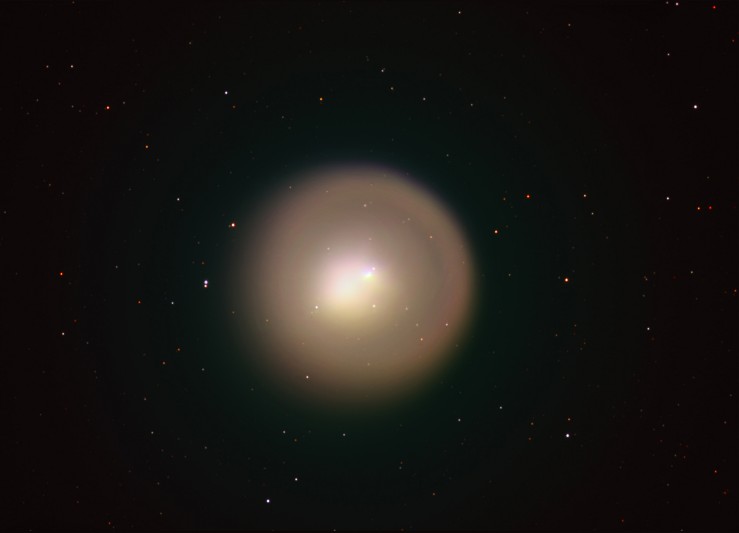
|
Credit & Copyright: Don Goldman
Explanation:
Surprising Comet Holmes remains easily visible
as a round, fuzzy cloud in the northern constellation
Perseus.
Skywatchers with telescopes, binoculars, or those that
just decide to look up
can
enjoy the solar system's latest
prodigy as it glides
about 150 million kilometers from Earth, beyond the orbit of Mars.
Still expanding,
Holmes now appears to be about 1/3 the
size of the Full Moon, and many observers report a
yellowish tint to the dusty
coma.
A golden color does dominate this
telescopic view recorded on November 1,
showing variations across the coma's bright central region.
But where's the comet's tail?
Like any good
comet, Holmes'
tail would tend to point away from the Sun.
That direction is nearly along our line-of-sight behind the comet,
making its tail very difficult to see.
|
January February March April May June July August September October November December |
| ||||||||||||||||||||||||||||||||||||||||||||||||
NASA Web Site Statements, Warnings, and Disclaimers
NASA Official: Jay Norris. Specific rights apply.
A service of: LHEA at NASA / GSFC
& Michigan Tech. U.
Based on Astronomy Picture
Of the Day
Publications with keywords: comet Holmes
Publications with words: comet Holmes
See also:
